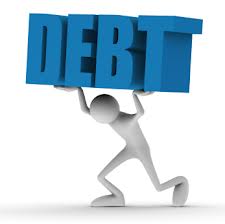Know Your Rights. Intro To The Fair Debt Collections Practices Act (FDCPA)

If you’re like many New Mexicans, you may have a debt collector contacting you about an old debt that you simply cannot pay. Having a debt collector call and write you can be confusing, embarrassing, and stressful. Thankfully, there may be some relief from these collectors. The Fair Debt Collection Practices Act (FDCPA) is a federal law designed to regulate debt collectors and protect consumers from abusive, unfair, and deceptive collection practices.
Who Does the FDCPA Apply To?
Before learning about the protections of the FDCPA, it’s important to understand a key concept: the FDCPA applies to debt collectors, not to the original creditor. For example, if you defaulted on a credit card from Bank ABC and Bank ABC is writing you or calling you trying to collect on that debt, then Bank ABC is not considered a debt collector under the FDCPA. The FDCPA doesn’t apply to Bank ABC in this situation. That doesn’t mean that Bank ABC can do whatever it wants in an attempt to collect the debt. Bank ABC still needs to follow state consumer laws. However, the FDCPA does not apply.
Under the FDCPA, debt collectors can be broken down into three main categories:
- Collection Agencies – businesses that are hired by the original creditor or a debt buyer for a flat fee or on a contingency basis to collect the debt;
- Collection Law Firms – like Collection Agencies, these are law firms that are hired by the original creditor or a debt buyer for a flat fee or on a contingent basis to collect the debt; and
- Debt Buyers – as discussed about, businesses that buy the debt from the original creditor, for pennies on the dollar, and then seek to collect the debt.
So, continuing with the example above, if Bank ABC sells the debt that you owe to We Collect Debts, LLC or if Bank ABC hires We Collect Debts, LLC to collect your debt, then We Collect Debts, LLC is required to follow the FDCPA.
Key Protections of FDCPA
A few of the key protections of the FDCPA are: 1) debt collectors are required to stop contacting you if you tell the collector to cease contact; 2) debt collectors have to send you a “validation notice” within five days of first contacting you and this notice must contain certain important information; 3) debt collectors cannot harass, abuse, lie or mislead you in an attempt to collect a debt; 4) debt collectors contact with third parties about the debt (meaning someone other than you, like family members or friends) is strictly regulated; and 5) you have the opportunity to dispute the debt with the debt collector.
As you can see, the FDCPA is a strong law for consumers. We will talk more about each of these protections in future blogs. For now though, here’s a little advice and help about protection No. 1 highlighted above. If you are tired of getting calls and/or letters from a debt collector, then you can do something about it. Write the debt collector a “no contact” letter. You can use this link as a template for that letter: FDCPA Letter
Be sure to sign the letter, make a copy of it, and to send it via certified mail, return receipt requested. This is the mailing option where the person receiving the letter has to sign for it, so you’ll have proof that the debt collector received your letter. If the debt collector keeps contacting you to collect the debt, then you may have a claim under the FDCPA.
Though the FDCPA prohibits debt collectors from contacting you after you tell them not to, it’s important to note that there are debt collectors out there that don’t follow the law and will simply ignore your request. Treinen Law Office has found that there are many debt collectors who don’t even attempt to follow the FDCPA. These debt collectors threaten to arrest consumers, claim that they work for some kind of state or federal agency, aren’t open and honest about the name of their company, and generally try to threaten and scare consumers into paying a debt. These types of collection practices are outrageous. The debt collectors that use them are nothing more than shakedown artists and they are unlikely to respect a “no contact” letter. Often times these debt collectors are nothing more than shadow companies, illegitimate businesses that spring up and disappear quickly in an effort to evade being hauled into court for FDCPA violations.
If a debt collector is being abusive, trying to pressure you into paying immediately by threatening you, or if the debt collector isn’t being open and honest about the name of their company, do not pay them. Be firm, try and get as much information about the debt collector as possible, and tell them to stop contacting you. If you believe a debt collector is violating your rights under the FDCPA, feel free to contact our office. You can give us a call or fill out the free case evaluation online by scrolling to the bottom of any of our website’s pages. The Treinen Law Firm handles FDCPA cases on a regular basis.
Be sure to check out our upcoming blogs about the FDCPA so that you can know and assert your rights.